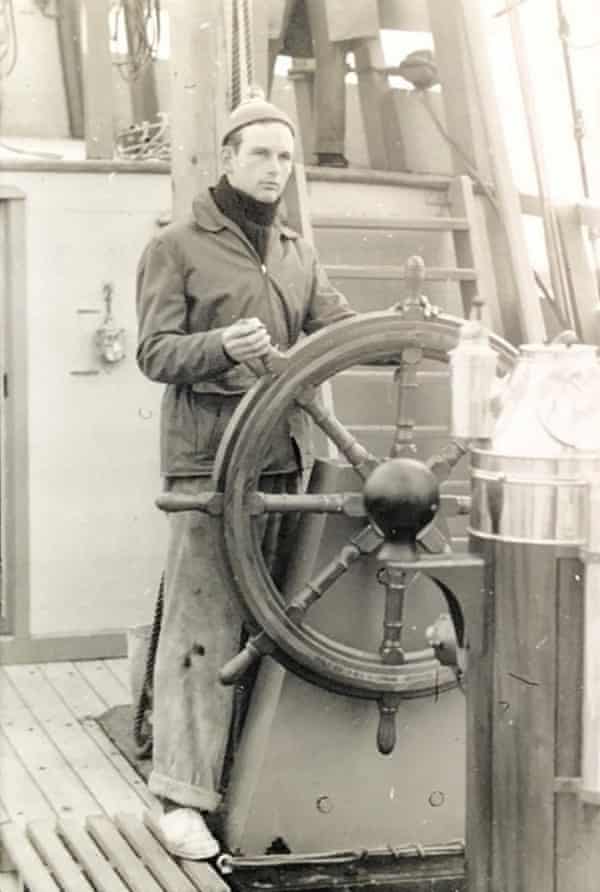My colleague and friend Peter Padfield, who has died aged 89, was a freelance author who made an outstanding contribution to the history of the sea, as a seaman, historian and analyst, across five decades.
Born in Kolkata, India, Peter came from an army family. His father, William Padfield, was a captain in the Royal Engineers attached to the Indian army, and his mother, Annice (nee Abbott), was the daughter of the colonel of engineers in Bombay (now Mumbai). William died when Peter was seven, and Peter returned to England with his mother and younger brother, attending Northcliffe House prep school in Sussex, which was evacuated to Cornwall during the second world war.
Later, he was educated at Christ’s hospital in West Sussex, and the Thames Nautical Training College, HMS Worcester. Peter then served as a navigating officer in P&O liners, before joining the crew of the replica 17th-century Mayflower, recreating the pilgrim fathers’ voyage, described in his first and last books, The Sea Is a Magic Carpet (1959) and Mayflower II Diary (2019).

Peter met Jane Yarwood, whom he married in 1960, in London, where he worked in nautical journalism until the international success of The Titanic and the Californian (1965) encouraged him to become a full-time writer. The number of books Peter wrote, and the range of subject matter, demonstrates a wide and inclusive engagement with Britain, the sea and, in the case of his Nazi studies, the need to understand what lay on the other side of the hill in the second world war. His work was distinguished by a zest for challenging comfortable orthodoxies, whether it be about the Titanic disaster, or the politics and personality of the last leader of Nazi Germany, Grand Admiral Karl Dönitz. Peter highlighted Dönitz’s early and profound attachment to Nazi ideology, at a time when many were reimagining the war criminal as a hero.
The Maritime Trilogy, Peter’s three-volume study of British maritime identity, inspired other scholars, myself included, to reconsider the connections between the state, maritime enterprise and sea power, making a critical contribution to 21st-century debates about Britishness, attracting high-profile commentary and awards. My favourite among his books is Broke and the Shannon of 1968, an elegant study of a great seaman and his defining battle, a work that continues to shape our understanding of the long-forgotten Anglo-American war of 1812. Peter was a scholar-seaman of the highest standing, an author who followed his own path and made a massive contribution to that most British of subjects, maritime history.
Jane died in 2018 and Peter’s brother, Tim, died in 2020. Peter is survived by his children, Deborah, Guy and Fiona, and grandchildren, Max and Megan.
link
